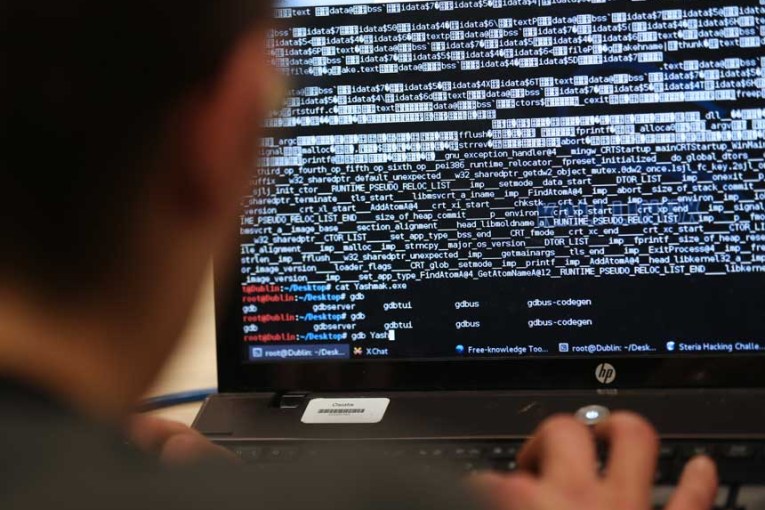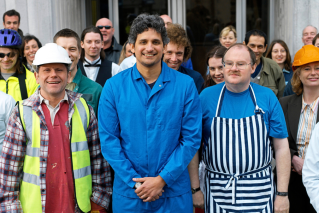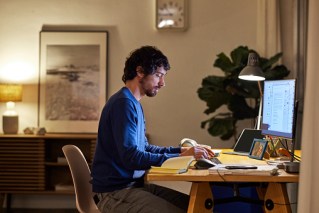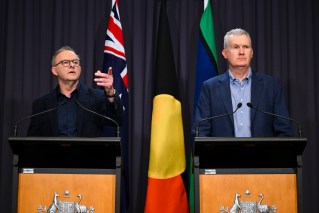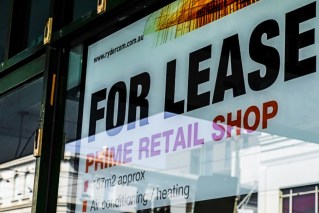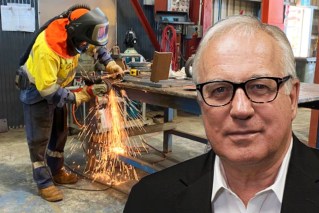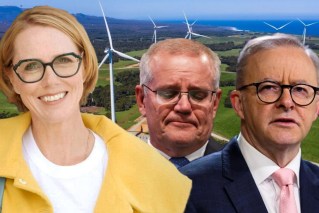Become a millionaire without attending uni

You can't learn everything from books, say self-made millionaires.
Entrepreneur Glen Carlson*, 32, is a self-made millionaire, and a university drop out.
He is the founder of Key Person of Influence, a business growth program.
He started studying international finance at the University of Sunshine Coast, assuming it was a prerequisite to success as an entrepreneur.
After hitting the books hard for a year, Mr Carlson found himself in the top one per cent of his class, but none the wiser, so he dropped out.
“[University] is not giving anyone that wants to be an entrepreneur what they actually need,” he says.
More than a quarter of Australian workers hold a bachelor’s degree or higher, while figures from the 2011 census show a 25 per cent jump since 2006, to 932,000 people studying at Australian universities.
Despite this, the irrelevance of a tertiary degree is a common complaint among start-up owners and is likely to become more of an issue if university becomes more expensive.
University is not giving anyone that wants to be an entrepreneur what they actually need.
The recent Commission of Audit Report recommends cutting funding for university students and increasing HECS-HELP debt repayments.
University is, of course, mandatory for doctors, dentists, lawyers and many other professions, and there is research to suggest that university graduates are higher earners.
Mr Carlson, whose business program is now three years old with a current annual turnover of $5 million, does sometimes dream of having a Masters of Business Administration, and says university is still worthwhile for certain careers.
“I would love to go to university to study literature or philosophy or something like that because of the rigour of thinking,” he says.
But if it does become even more expensive to earn a degree, will Australians really need to subject themselves to financial pain in order to become successful?
Mr Carlson’s answer is a resounding no: “If you want to be an entrepreneur, university is useless.”
Here’s what start-ups learn instead.
The practical side of business
Mr Carlson started his first business at the age of 15, cleaning the underside of boats in scuba gear.
While at university, he realised many of his 40-odd boat cleaning clients had never even graduated from high school, but had their own boats and booming businesses and were far more successful than his university lecturers.
So Mr Carlson quit, in the hope that he would learn more practical knowledge from successful businesspeople than academics.
After nine months as a salesman for a private company, he went into partnership with a friend in a training company, Triumphant Events. In their first year, they turned over $1 million in sales, in the second year it went up to $10 million.
“Compared to my lecturers and my tutors, we were nailing it,” Mr Carlson says.
The academic tick of approval
Financial planner and hospitality industry entrepreneur Vern Fettke thought an MBA would give his career the academic tick of approval.
In practice he says it taught him little and didn’t make him “an any better businessperson”.
“All I’ve really learned is academic-speak,” Mr Fettke says.
Mr Fettke has benefitted more from his practical experience, where he has made “a fair killing” from six restaurants, a butcher’s shop, an employment agency, and a fruit and veggie grocer.
He has also worked as a Bail Justice, a cook in the Australian air force, and on numerous boards.
Now, Mr Fettke is scathing of the way universities teach their students “to pass the bloody exam”, not to excel.
“Things have evolved to a point where we have students at the moment who if they were asked to think a little bit bloody laterally they wouldn’t understand what you were talking about,” he says.
“The measurement is how many people pass and what the percentages are, because mums and dads who pay for this want to get value for money.
“They’re a business the same as anything else, and they want to get the lion’s share of the clients.”
An informal education future?

You can’t learn everything from books, say self-made millionaires.
Rueben Taylor, a business mentor and educator based in Perth, has an engineering degree and an MBA from the University of Western Australia, and while skeptical about the value of his degrees, appreciates that you can’t learn everything by trial and error.
Mr Taylor started Business Wealth Educators to fill the gaps between education and the real world through “self-paced learning” for business people to sharpen their skills in particular areas such as how to interpret a balance sheet.
Many of his clients never went to university, or dropped out.
“They realise there must be a smarter way to run their business, which no-one ever taught them because they just got on and did it,” Mr Taylor says.
He says mainstream society is soon going to “question the formal degree and its future,” and focus more on mentoring and learning directly from “someone who’s got a demonstrated track record and a passion in that area”.
What university can’t teach you
How to sell: Glen Carlson says university didn’t teach him how to sell, which is the core of every business.
Adapt to change: Universities can be slow to adapt to change and new thinking in the business sector, Mr Carlson says, with the “stuffy” academic atmosphere making it hard to attract true entrepreneurial talent to its teaching staff.
Personal skills: Working well with others, motivation and organisation aren’t part of university degrees.
Trial and error: Rueben Taylor says learning through life experience and trial and error – which can’t happen in a university – is more important than book learning.
Mentor: Higher education fails to connect its students with business mentors, which Mr Taylor sees as very important to business success.
* CORRECTION: This story wrongly attributed the quotes of Glen Carlson to Jack Delosa. The New Daily apologises for the error. The story has been corrected to attribute the quotes to Glen Carlson.
